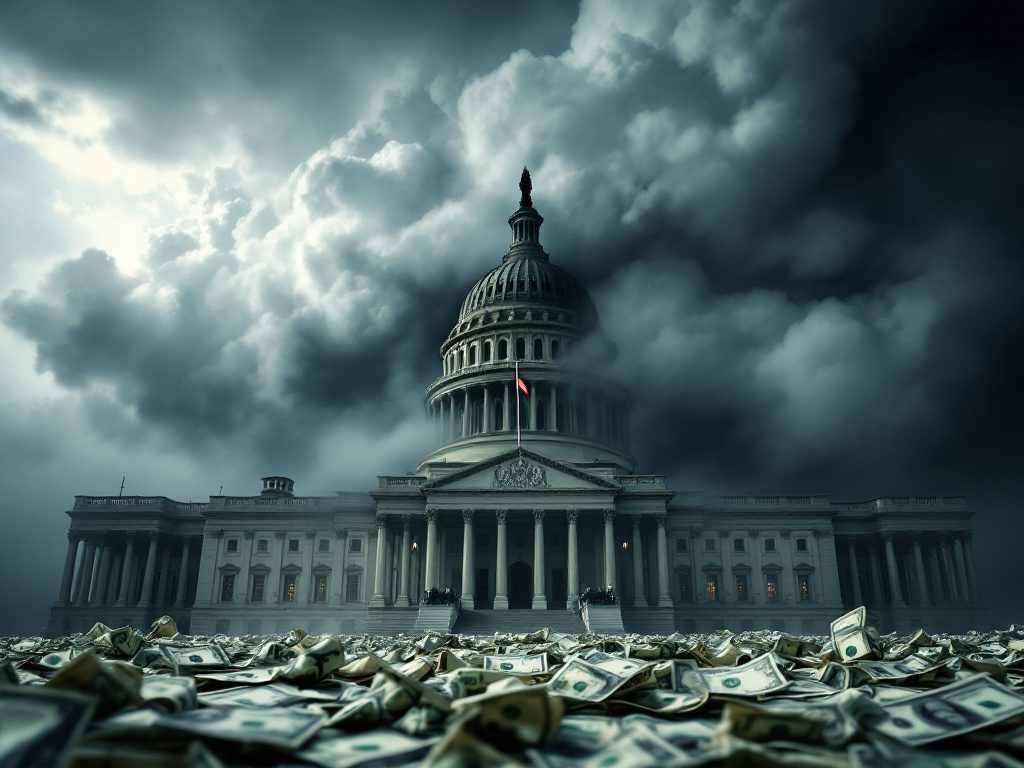The $430 Billion Freeze: More Than Bureaucratic Red Tape
Imagine your child’s preschool abruptly shuttered, or your community’s hopes for much-needed infrastructure repair evaporating overnight. That’s the tangible reality behind the numbers in a simmering clash over federal dollars frozen by the Trump administration. Recent reports from top Democratic lawmakers expose an extraordinary freeze: over $430 billion in congressionally approved funds withheld by the White House in just its first 100 days, stalling vital programs spanning from disease research to disaster relief and education.
According to data made public by Democratic appropriations leaders—Senator Patty Murray of Washington and Representative Rosa DeLauro of Connecticut—the administration has blocked no fewer than 114 separate funding streams. The implications stretch far and wide. As detailed in the lawmakers’ online tracker, these withheld funds include:
- $42 billion for the State Department and USAID, hampering global outreach and diplomacy
- $62 billion in competitive transportation grants, critical for public safety and economic revitalization
- $943 million for Head Start, a lifeline for early childhood development in under-resourced communities
- Billions for disaster resilience, including FEMA’s Building Resilient Infrastructure and Communities program
- $10 billion for Natural Resources Conservation Service, directly affecting landowners and conservation efforts
- Funds for AmeriCorps, wildfire management, Social Security research, and more
This gridlock isn’t simply the product of bureaucratic inertia. A closer look reveals a deliberate executive strategy that, Democrats argue, not only upends programs Americans rely upon but veers dangerously close to undermining the bedrock of representative democracy itself.
Challenging the Power of the Purse
Historic friction between Congress and the White House over federal spending is nothing new. The difference this time is magnitude—both in dollars withheld and the urgency of the needs at stake. Democratic leaders contend that the Trump administration’s refusal to release funds amounts to an unprecedented assault on Congress’s constitutional role as the “power of the purse.” While presidents have often clashed with lawmakers over budgets, the stakes here are not abstract but acutely personal and tangible.
The administration claims the suspensions reflect a commitment to rooting out waste and boosting efficiency, with the Department of Government Efficiency (led, remarkably, by business magnate Elon Musk) at the center of these efforts. But experts in government spending and constitutional law remain deeply skeptical. Harvard Law professor Laurence Tribe notes, “Congress appropriates, the executive implements—that’s the guardrail. When the president unilaterally blocks funds, it’s a step down the path toward executive overreach and, ultimately, a threat to democratic accountability.”
Instead of following the legal process—submitting rescission requests so Congress can review and approve any spending reductions—the White House has largely opted for a go-it-alone model, bypassing legislative oversight. According to the Congressional Research Service, “The rescission process is a safeguard ensuring the executive cannot simply ignore Congress’s will.” Without such checks, the executive could “reshape the federal government by fiat,” undermining legislative authority.
The result is not just a high-level spat inside the Beltway. The frozen funds have a direct impact on communities. Head Start centers may stall new enrollments. City leaders desperate for disaster recovery dollars find themselves caught in limbo. Hospitals and local clinics anticipating federal grants for disease research face hiring freezes or canceled programs—at a moment when public health infrastructure is already stretched thin.
“When the president unilaterally blocks funds, it’s a step down the path toward executive overreach and, ultimately, a threat to democratic accountability.” — Laurence Tribe, Harvard Law School
Real-World Stakes and the Road Ahead
Political gridlock isn’t just a D.C. parlor game. The freeze has left families, municipalities, and small businesses nationwide scrambling to fill gap after gap, many with no clear solution in sight. The pain is multi-layered: disaster relief delayed due to stalled FEMA funds; working parents unable to secure child care as Head Start budgets freeze; even climate resilience projects faltering as natural resources grants sit idle. Those most vulnerable—children, the elderly, low-income regions—bear the brunt.
Legal challenges are mounting. Civil rights groups and state attorneys general have already launched lawsuits demanding the release of funds, describing the actions as not just policy dispute but “an abdication of duty” to the American people. Republicans, too, have shown unease when funding for their own districts is at risk, highlighting the surprisingly bipartisan frustration with executive overreach when the consequences hit home.
What’s truly at stake? Beyond any single program, the controversy exposes a larger struggle over democracy itself. Congressional power over federal spending is written in the Constitution for a reason: to ensure that public resources reflect the people’s priorities—not the whims of any one administration. When these lines blur, a precedent is set that could undermine faith in government for years to come.
Looking forward, the debate over withholding funds is likely to escalate. Lawsuits may compel agencies to release blocked money, but only time will tell whether this period of budgetary brinkmanship will leave lasting scars on the fabric of American governance. For now, advocates urge vigilance—and demand that elected officials respect both the letter and the spirit of democracy.

